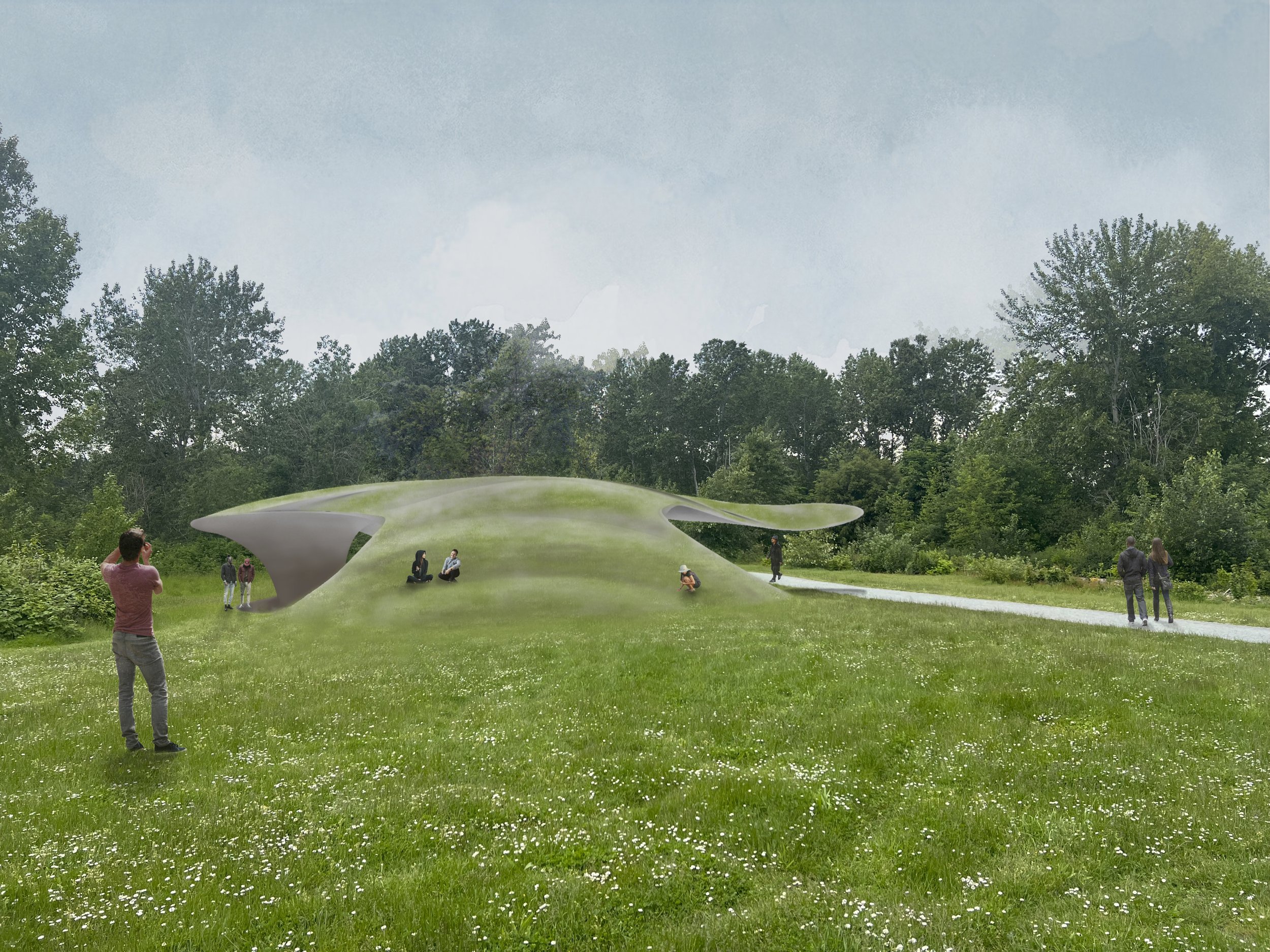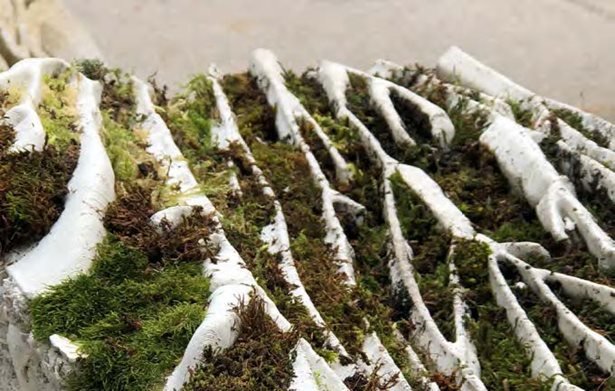Growth Pavilion + Coffee Shop
Deriving from a studio focused on the future of biomaterials in our built environments, the Growth Pavilion and Coffee Shop is a unique structure located atop a hill in Magnuson Park, Seattle. This project is constructed entirely from biomaterials, including bioreceptive concrete, coffee grounds composite, and seaweed bioplastics. Conceptually, the pavilion appears to grow organically from the earth, blending seamlessly with the landscape and revealing the hidden layers beneath. The program features a pavilion that serves as an exhibition space, allowing visitors to experience the use of biomaterials firsthand, alongside a small-scale coffee stand integrated into one of the pavilion's large pillars. Drawing inspiration from natural patterns and forms such as ocean swell lines, sand ripples, and cracked desert grounds, this project explores the possibilities of biomaterials in architecture, creating a harmonious and sustainable environment.

Biomaterial Selection
Bioreceptive Concrete
-
A porous concrete mix allowing for the growth of moss and other flora within its surface is used as the casted material for the pavilion's shell. This living material will allow for the structure to blend with its site as greenery grows over its surface.
Coffee Grounds Composite
-
Floor plates are fabricated by combining recycled coffee grounds with resin to produce a solid material, which is then CNC cut into the desired shape. The design of this project's flooring is inspired by the natural polygonal patterns found on valley floors, such as those in Death Valley, California.
Seaweed Bioplastic
-
By extracting polymers from raw seaweed and blending them with plasticizers, a uniquely colored natural material is created. These seaweed bioplastics drape over some of the pavilion's skylight openings, replacing traditional glazing and providing colored light filtration.
Mood Board



As a supplemental element to a project dedicated to exploring the possibilities of biomaterials, this experiment focused on creating innovative material samples as alternatives to traditional concrete mixes. The samples are designed with patterns and undulations to create pockets and spaces for moss and other flora to grow. Utilizing eggshells as an alternative aggregate, the samples were made using a simple mixture of eggshell powder, sodium alginate, and water, showcasing the potential for sustainable and nature-integrated construction materials.
Eggshell Composite Samples
3D printed molds
poured molds
results








